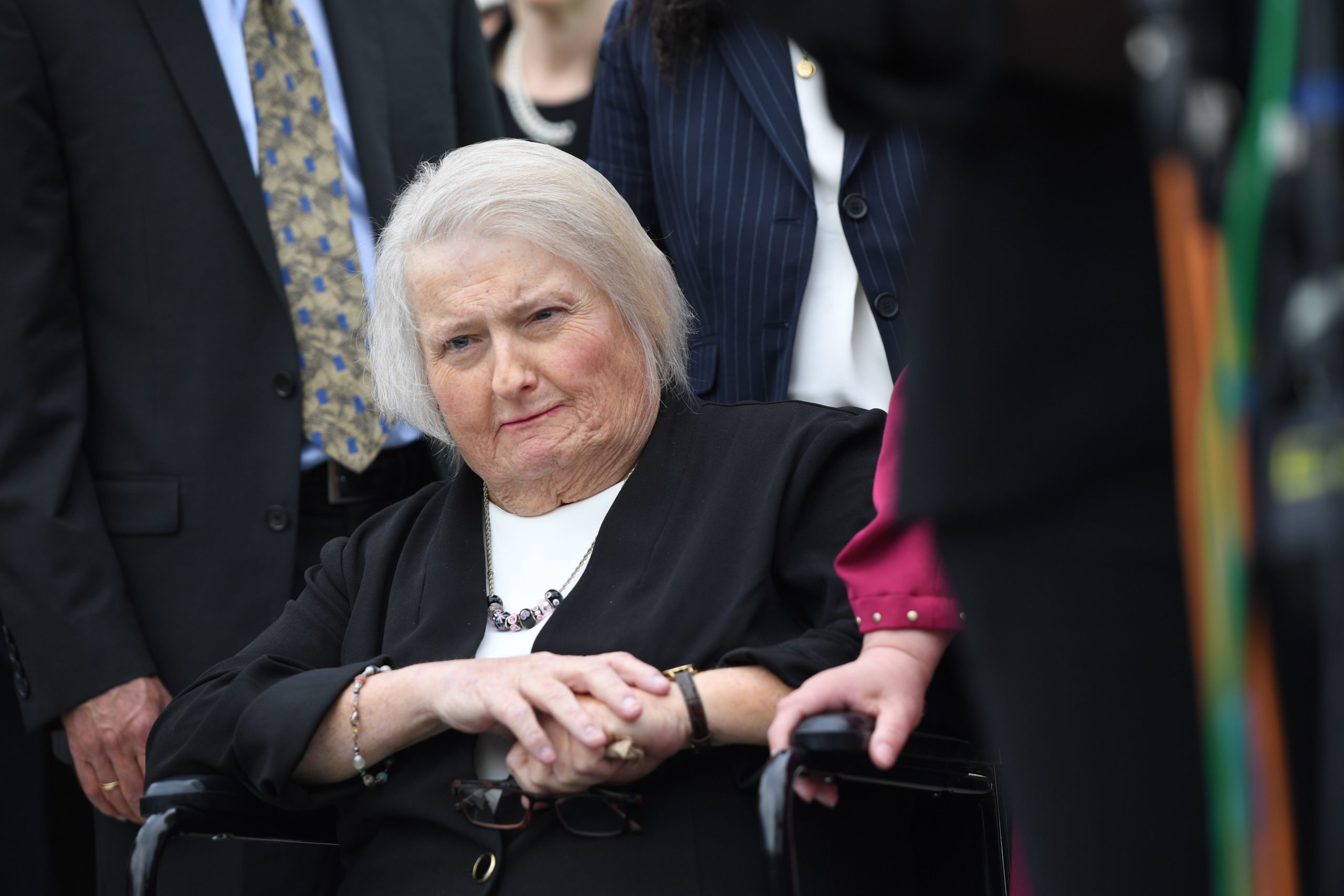Transgender activist Aimee Stephens sits in her wheelchair outside the US Supreme Court in Washington, DC (SAUL LOEB/AFP/Getty)
The funeral home that fired trans trailblazer Aimee Stephens has agreed to pay $250,000 to settle a lawsuit that kickstarted the Title VII Supreme Court case.
Stephens lost her job at RG and GR Harris Funeral Homes in 2013 when she came out as transgender. She took her fight to the highest court in the country and eventually won a landmark victory for LGBT+ rights.
Tragically she did not live to see the verdict as she died of kidney disease aged 59, just weeks before the ruling was announced.
Seven years after she began her battle, the case is finally closed as a federal judge signed off on a financial settlement. Under the terms of the agreement, Harris Homes was ordered to pay $130,000 to Stephens’ estate, including $63,724 in back pay with interest and $66,276 in damages.
“We are pleased that all sides were able to come to an agreement regarding damages and attorney fees,” said Jay Kaplan, Stephens’ long-time attorney at the American Civil Liberties Union of Michigan.
“The settlement of this case is bittersweet in that Aimee passed away before matters could be resolved.”
US district judge Sean Cox also ordered Harris Homes to pay another $120,000 to the ACLU Foundation for costs and plaintiff attorney fees.
All of its branches are now prohibited from firing employees on the basis of transgender status and all employees must undergo discrimination and bias training within the next 90 days.
Harris Homes will lead by example, starting by addressing the clothing allowance it offers to employees. Until now this was “significantly less” for women than for men.
All of the women employed since September 2012 will be offered a backpay for the clothing stipend they did not receive, which will total $3,040 for the period between September 2012 and October 2014 and $665 for the period since 2014.
That the ruling should circle back to clothing would be a kind of poetic justice for Aimee Stephens, whose case began all those years ago with a simple request that she be allowed to wear a dress to work.
